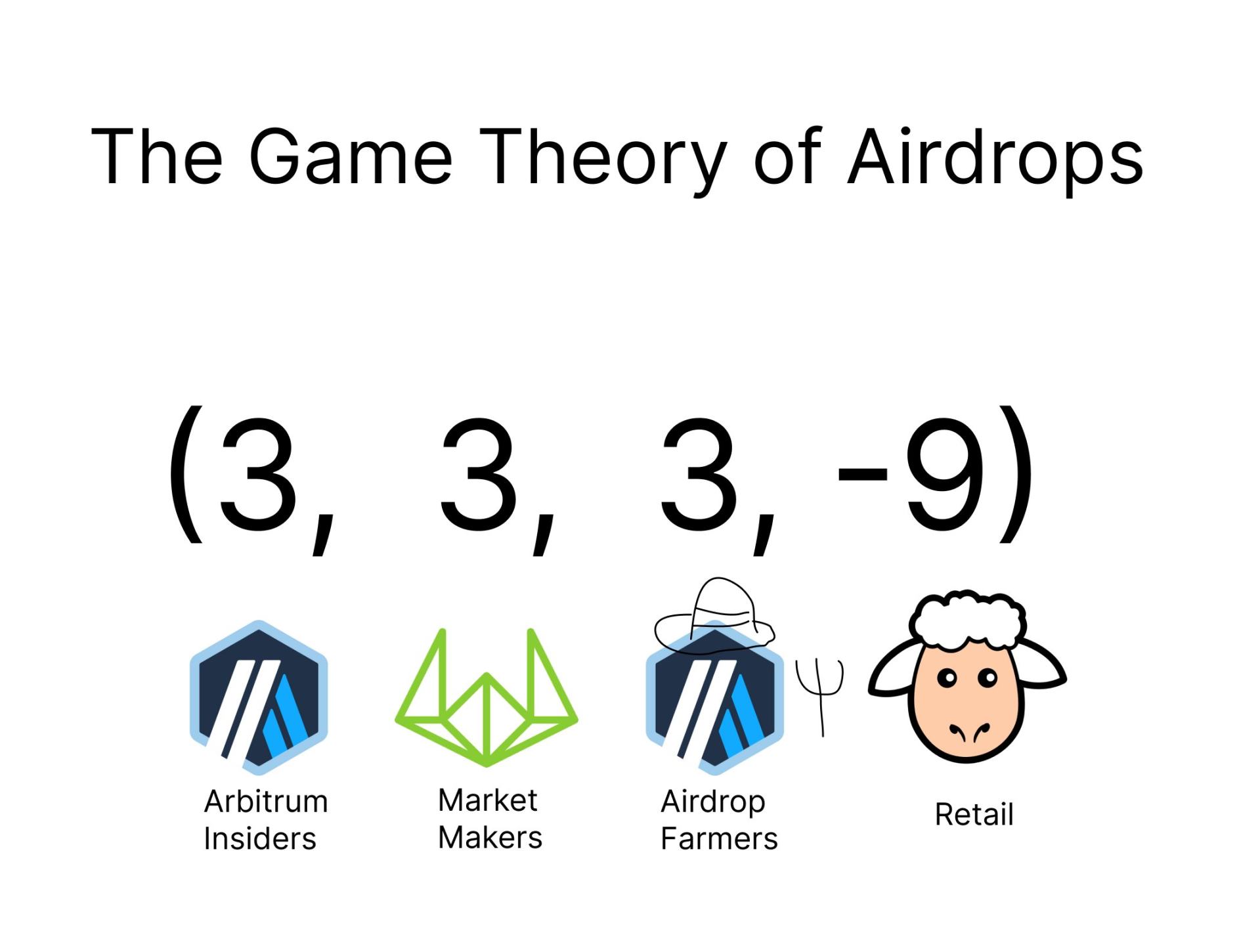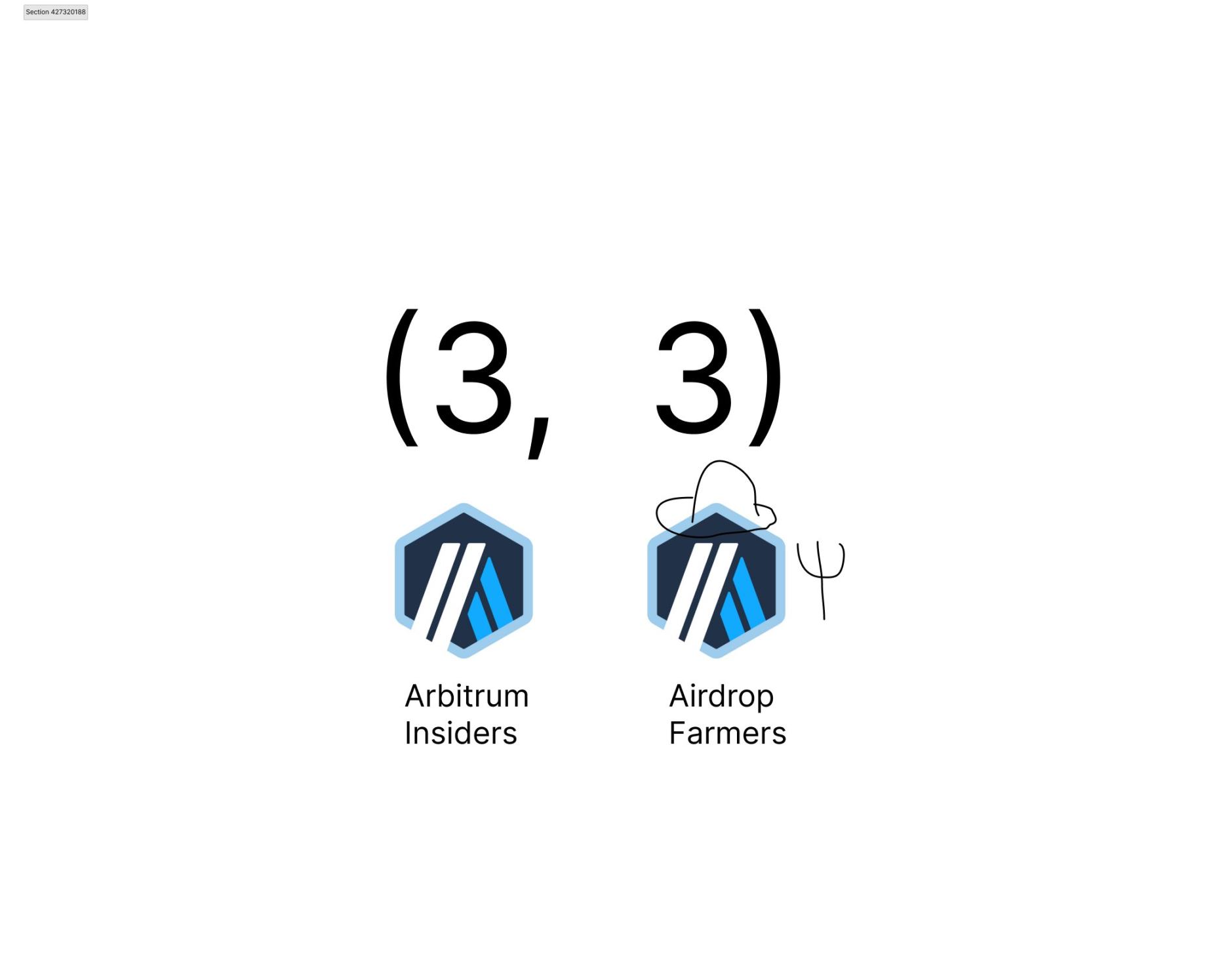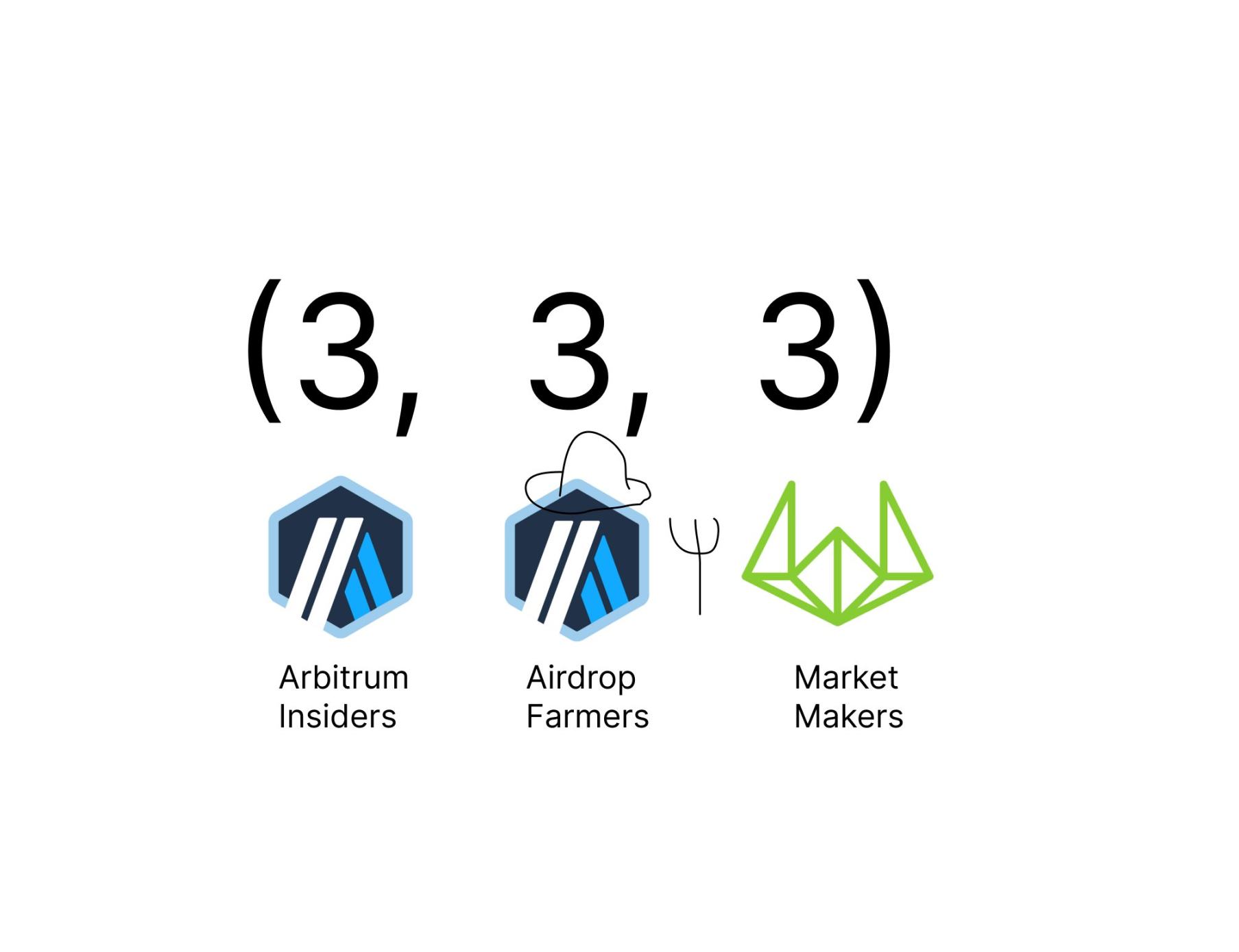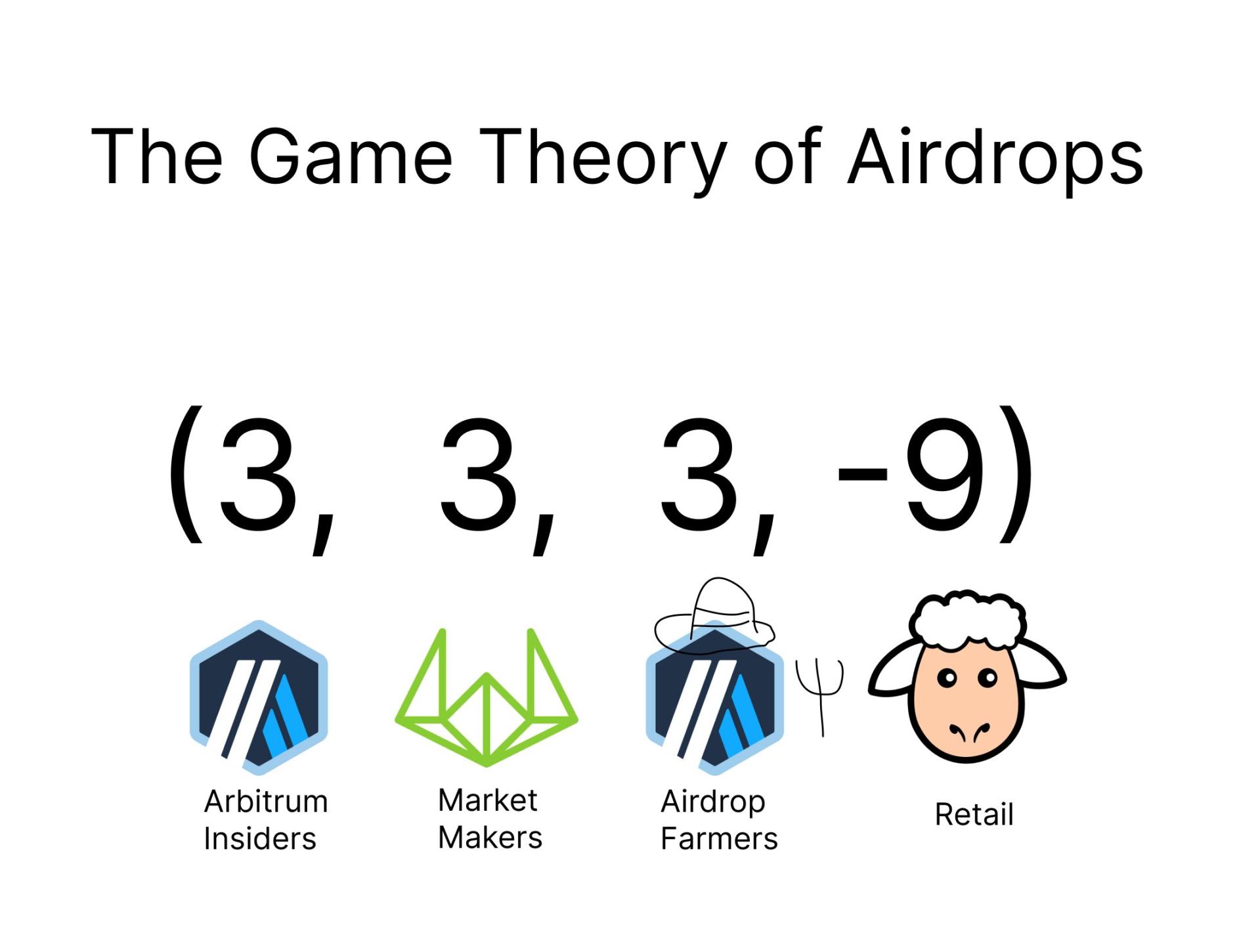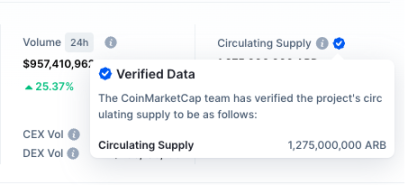Reflecting on the Arbitrum Governance Storm: How Important is the Commitment to Decentralization?
Written by: Alex
Compiled by: 0x11, Foresight News
This tweet discusses the Arbitrum airdrop and the game of decentralization, as Arbitrum recently found itself in an awkward position due to a public governance incident.
90% of the value in crypto networks comes from the commitment to decentralization. To maximize valuation:
- The network needs to appear very active
- The network distribution needs to seem decentralized
Crypto networks resonate with the "airdrop party," collaborating to promote healthy growth in project valuation.
However, insiders at Arbitrum and the "airdrop party" will eventually sell off the tokens they received as incentives. To address this issue, they need to seek help from experienced financial market players to mitigate the negative impact of selling pressure.
These financial veterans can leverage their market expertise to match potential buyers and selling pressure in the market.
This brings us to a new question: how will these experienced participants extract value from this? The answer is simple: through lending and call options. Holding call options while selling tokens allows for risk-free hedging.
Now, in our hypothetical ecosystem, there are three types of cooperating participants. So who stands on the opposing side? The answer is retail investors.
There is a clear game theory relationship between sellers and retail investors. Retail investors exchange their fiat currency for tokens because they believe in the long-term value of the project.
These are the rules of the game, and this is how it works. When other participants collude to "exploit" them without violating the rules, retail investors feel uneasy, and the commitment to "decentralization" is exposed as a lie. When retail investors learn that game participants are "cheating" by selling more tokens than initially disclosed, things will obviously get worse.
I know this is nothing new for anyone who has been in this field for a while. Compared to some of its "predecessors," Arbitrum's behavior has not caused any serious harm.
Arbitrum could even immediately sell all 4.2 billion tokens allocated to the DAO through direct sales and market-making trades without any oversight or communication with the public.
"For years, crypto projects have been doing this."
(3, 3, 3, -9) Works in a bull market, just look at OHM. As the market matures, things should improve. But if the rules of the game are unfair, how can the market grow?
As a community, we should demand that the circulating supply of tokens reflects the number of tokens that can enter the market without public disclosure.
This means that for ARB, the circulating supply should be 1.2 billion + 4.2 billion of DAO funds, resulting in 5.4 billion tokens or about 6 billion dollars.
Some say the community "has the right" to receive "free money" from the airdrop. This indicates that they do not fully understand the game. Please seriously consider this question: where do you think this money, seemingly conjured out of thin air, is being printed from?



